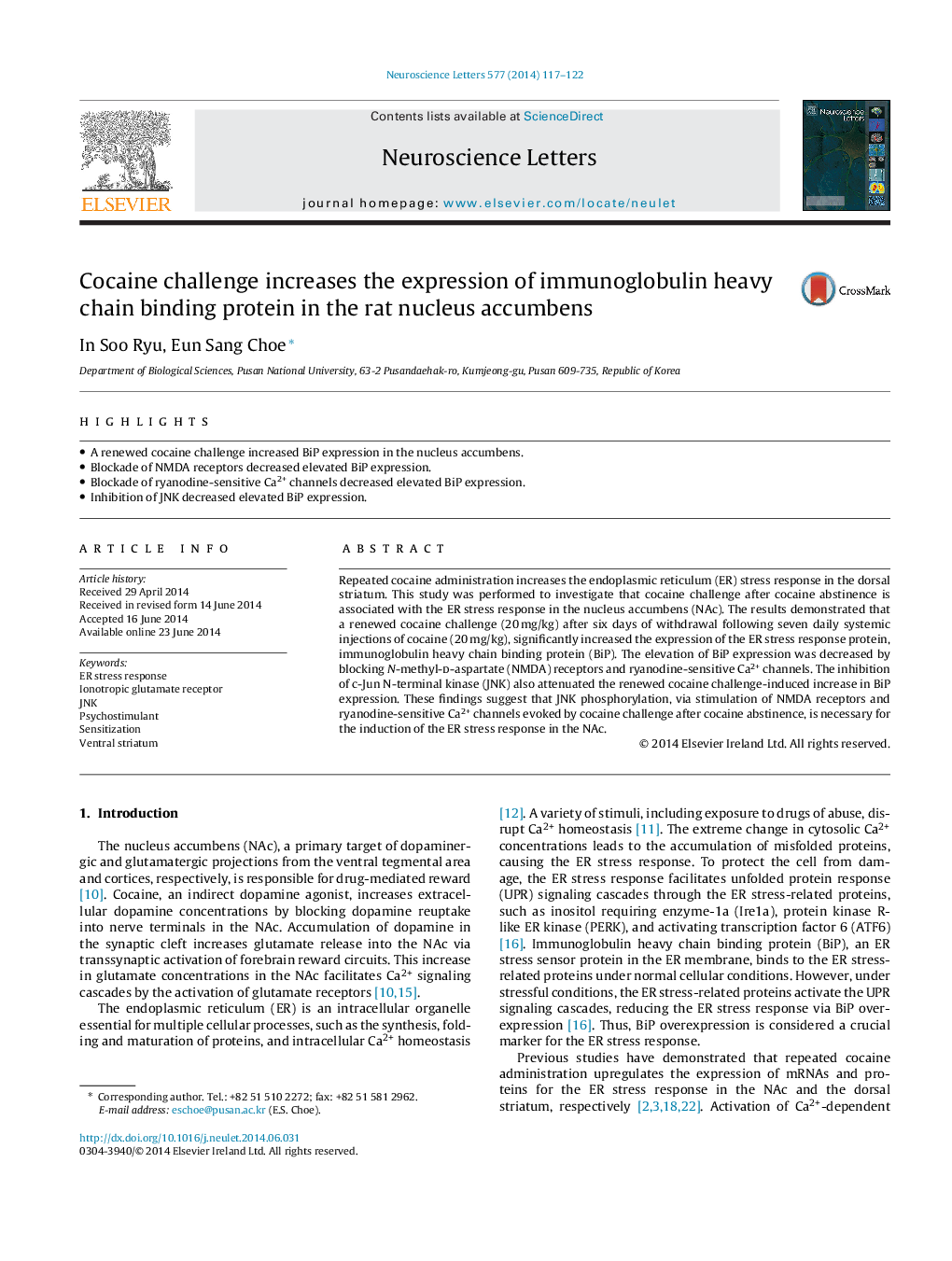| کد مقاله | کد نشریه | سال انتشار | مقاله انگلیسی | نسخه تمام متن |
|---|---|---|---|---|
| 4343710 | 1615122 | 2014 | 6 صفحه PDF | دانلود رایگان |
• A renewed cocaine challenge increased BiP expression in the nucleus accumbens.
• Blockade of NMDA receptors decreased elevated BiP expression.
• Blockade of ryanodine-sensitive Ca2+ channels decreased elevated BiP expression.
• Inhibition of JNK decreased elevated BiP expression.
Repeated cocaine administration increases the endoplasmic reticulum (ER) stress response in the dorsal striatum. This study was performed to investigate that cocaine challenge after cocaine abstinence is associated with the ER stress response in the nucleus accumbens (NAc). The results demonstrated that a renewed cocaine challenge (20 mg/kg) after six days of withdrawal following seven daily systemic injections of cocaine (20 mg/kg), significantly increased the expression of the ER stress response protein, immunoglobulin heavy chain binding protein (BiP). The elevation of BiP expression was decreased by blocking N-methyl-d-aspartate (NMDA) receptors and ryanodine-sensitive Ca2+ channels. The inhibition of c-Jun N-terminal kinase (JNK) also attenuated the renewed cocaine challenge-induced increase in BiP expression. These findings suggest that JNK phosphorylation, via stimulation of NMDA receptors and ryanodine-sensitive Ca2+ channels evoked by cocaine challenge after cocaine abstinence, is necessary for the induction of the ER stress response in the NAc.
Journal: Neuroscience Letters - Volume 577, 8 August 2014, Pages 117–122
